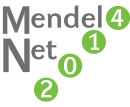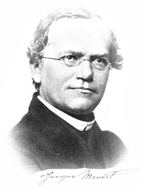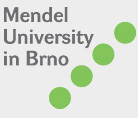Publication Ethics
Publication Ethics and Malpractice Statement for the international scientific PhD students Conference MendelNet
The international scientific PhD students Conference MendelNet provides a platform to discuss new trends in plant and animal production, plant and animal biology, agroecology, rural development, food technology, techniques and technology, and applied chemistry and biochemistry etc. with participants from European educational and research institutions.
The editor-in-chief of the conference is responsible for, among other, preventing publication malpractice. Unethical behavior is unacceptable and MendelNet does not tolerate plagiarism in any form.
All authors and co-authors who submit their contributions to proceedings of the MendelNet conference agree with publishing of their reviewed texts on www pages of the MendelNet conference and with submission of the conference proceedings containing their fulltext contributions in order to be evaluated for coverage in international scientific databases.
Editors, authors, and reviewers are to be fully committed to good publication practice and accept the responsibility for fulfilling the following duties and responsibilities:
I DUTIES OF THE EDITOR
- Publication Decisions: The editorial board can accept the contribution, reject it or send it back for modifications. The editorial board initially examines the originality of the contribution and its suitability for inclusion in an appropriate section.
- Review of Contributions:After the contribution passes the test of originality and suitability for one of the conference section, it is forwarded to at least two independent reviewers for single-blind peer review (the authors do not know the identity of the reviewers). The process is as follows:
- Formal control within which the first reviewer assesses the compliance to the guidelines for authors.
- Next, the content as such is evaluated by the second (and the third, if applicable) reviewer; the expert review takes place only in case the contribution has successfully passed the formal control.
Each reviewer will fill in the evaluation form with recommendation – the first reviewer: to accept the contribution for further evaluation or to modify or to reject it for formal reasons, the second reviewer: to publish the contribution or to modify or to reject it.
Editor treats reviewers’ evaluations with appropriate dignity. Likewise, the editor considers all possible conflicts of interests the reviewer might have. Should the reviewer make an error, it is dealt with at the level of the editorial board.
- Fair Review: The editor ensures that each contribution received is evaluated based on its intellectual content without regard to authors’ sex, gender, race, religion, citizenship, etc.
- Confidentiality: The editor must not disclose any information about a submitted contribution to anyone other than the corresponding (first) author, reviewers, potential reviewers, other editorial advisers, and the publisher, as appropriate.
- Disclosure and Conflicts of Interest: The editor must not use unpublished materials, disclosed in submitted contribution for his/her own research, without prior written consent of the author(s).
II DUTIES OF THE AUTHORS
- Reporting Standards: Authors of reports of original research should present an accurate account of the work performed as well as an objective discussion of its significance. Underlying data should be represented accurately in the contribution. A contribution should contain sufficient detail and references to permit others to replicate the work. Fraudulent or knowingly inaccurate statements constitute unethical behavior and are unacceptable.
- Originality: Authors must ensure that their work is entirely original.
- Multiple, Redundant, or Concurrent Publications: Authors must not publish the submitted contributions or its parts in its form, content and scope in other journal or conference proceedings. However, presentation in another manner is possible.
- Acknowledgement and Sources: Proper acknowledgment of the work of others must always be given. Authors should cite publications that have been influential in determining the nature of the reported work.
- Authorship of the Contribution: Authorship should be limited to those who have made a significant involvement to the conception, design, execution, or interpretation of the contribution. All those who have made significant assistances should be listed as co-authors.
- Disclosure of Financial Support: All sources of financial support, if any, must be disclosed.
- Fundamental errors in published work: When an author discovers a significant error or inaccuracy in his/her own published work, it is the author’s obligation to promptly notify the editor or publisher and cooperate to retract or correct the contribution.
III DUTIES OF REVIEWERS
- Manuscript Quality: Peer review assists the editor in making editorial decisions and through anonymous communications with the authors may also assist the author in improving the contribution.
- Confidentiality and Conflicts of Interests: Privileged information or ideas obtained through peer review must be kept confidential and not used for personal advantage. Reviewers must reject to consider contributions in which they have conflicts of interest.
- Acknowledgement of Sources: Reviewers should identify relevant published work that has not been cited by the authors and bring it to the attention of the editor and/or the author(s).
- Standards of Objectivity: Reviews must be conducted objectively. Personal criticism of the author is inappropriate. Reviewers must express their views clearly with supporting arguments.
- Promptness: If a reviewer believes it is not possible for him/her to review the research reported in a contribution within the designated guidelines, or within stipulated time, he/she must notify the editor, so that the accurate and timely review can be ensured.
Publication Ethics download
|





